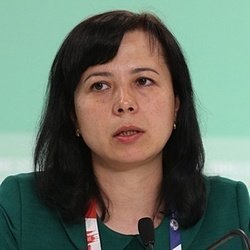Tatarstan to give anti-covid 'vaccine' to businesses
Entrepreneurs affected by the Сovid-19 restrictions will be supported by compensation for employees and preferential loans
Tatarstan has not extended the non-working days due to the coronavirus epidemic but tightened the anti-covid-19 restrictions. The requirements for having a QR code for access to public transport and visiting the universities will also be added to the already known rules for visiting public places and shopping centres in the coming weeks. Tatarstan's leadership is going to support the entrepreneurs affected by the Covid-19 restrictions with compensation for employees during the week of downtime and preferential loans under the FOT 3.0 programme. The issues of participation in the programmes were discussed at a meeting with the president of the republic. More than 23,000 SMEs can apply for federal grants in the amount of one minimum wage per employee in Tatarstan, of which in Kazan alone — 10,500. However, so far there are many times fewer applications, and municipalities have been instructed to establish feedback with entrepreneurs. Read the details in the material of Realnoe Vremya.
Who and how will receive grants for employees
New anti-records for coronavirus infection forced the Tatarstan authorities to tighten the measures by introducing QR codes for using public transport and at universities. The republic decided not to extend the regime of non-working days, but it will retain all previously imposed strict restrictions on the operation of a number of facilities, entertainment and mass events, until the sanitary and epidemiological situation improves.
Depressing data was announced at the meeting in the Government House at the end of the last non-working week. Since the beginning of the pandemic, 1,041 people with a confirmed diagnosis of COVID-19 have died in the republic, and the lion's share of them (85%) are elderly people.
“This is a huge figure. They should live longer. Some of them were not vaccinated, some were vaccinated late and did not have time to produce antibodies. These are statistics. I may be criticised, but we are going to take action. We have no other way out," said the president of Tatarstan, complaining about the low rates of vaccination.
In the context of anti-covid restrictions, the pandemic is causing a serious blow to businesses, therefore, assistance to entrepreneurs from the most affected industries comes to the fore. In accordance with the decree of the president of Russia dated October 20 on non-working days, the government of the country introduced anti-crisis measures to support businesses and socially oriented NGOs. These are grants for employees and the renewal of FOT 3.0 programme, both programmes have been implemented since November 1.
Under the grant programme, 38,5 billion rubles have been allocated to support affected entrepreneurs in Russia. Each applicant will receive compensation in the amount of one minimum wage (12,792 rubles) for each employee. Provided there are no tax debts as of July 1, 2021. Moreover, entrepreneurs and NGOs will be exempted from income tax on this grant once, as well as from contributions to non-state extra-budgetary funds for employees' salaries, and employees will be exempt from paying income tax on such funds.
Entrepreneurs from the affected industries can participate in the grant programme in 21 types of activity.
Each entrepreneur can check the possibility of receiving a grant independently — using the personal tax reference number on the website of the Federal Tax Service.
“We are receiving and have received many appeals from business. From entrepreneurs who work in the field of catering, hotel industry, fitness centres, transport organisations. All these OKVEDs are included in the list of industries that can potentially apply for these grants. Therefore, I ask you to pay attention to this," Tatarstan Minister of Economy Midkhat Shagiakhmetov addressed the heads of municipalities at the meeting in the Government House.
To receive a grant, it is necessary to submit an application to the Federal Tax Service by December 15 of this year — this can be done on the website nalog.ru in the personal account of a legal entity or sole proprietor.
In Tatarstan, 25,366 SMEs can become potential recipients. But so far, as of November 3, only 11% of their number — 2,858 entrepreneurs — have applied. Of these, 941 are legal entities and 1,917 are sole proprietors. At the same time, in Kazan alone, about 10,5 thousand entrepreneurs can apply for these support measures, in Naberezhnye Chelny — more than 4 thousand, in Nizhnekamsk district — 1,5 thousand.
“Not all municipalities have established proper interaction with enterprises to participate in support measures. Despite that we worked on this issue within the framework of the working group and brought this mechanism to the districts. The districts in which no grant applications have been received from the enterprises, while the potential number of grant recipients is significant for a number of municipalities. Municipalities need to strengthen their work with each specific potential recipient of the support measure. There are heads of districts here, these issues should be the focus of your attention," Shagiakhmetov stressed.
Among SONPOs (socially oriented non-profit organisations), 1,003 can apply for grants. It is also necessary to strengthen work at the municipal level to help such organisations with receiving compensation, the minister urged. In conclusion, he added that prompt feedback would allow timely solving the issues of each individual entrepreneur, as well as identifying systemic problems that, if necessary, will be worked out at the federal level.
Preferential loans under FOT 3.0 and new bonuses for the first stage of the programme
Another federal support measure is the programme of preferential lending at 3%, the so-called FOT 3.0. The acceptance of applications has been extended until December 30, 2021. Loans for a period of one and a half years are provided on condition that at least 90% of the number of employees is retained. The loan amount is one minimum wage per employee for the reporting period. For the first six months, you can not pay, then — in equal shares, taking into account interest.
SMEs and SONPO entities that received loans in 2020 for the resumption of activities under the FOT 2.0 programme, as well as SMEs created from July 1, 2020, can apply for preferential loans.
8,626 enterprises and organisations of the republic can apply for preferential loans. The FOT 3.0 programme includes 17 types of activities. Unlike grant support, there are no such OKVEDs as bus stations, as well as transportation by inland waterway transport, road freight transport and other land passenger transport activities.
In Tatarstan, 15 banks accept applications for loans. Five credit institutions have received 656 applications in the amount of 2,27 billion rubles. As of November 3, 17 loans worth 146 million were issued. “The request to banks is to promptly consider applications from republican organizations," the minister asked and also called on the districts to help entrepreneurs with participation in the programme.
For borrowers who have received a loan under the first stage programme: they can extend the payment of previously received loans.
The business is also promised assistance with the restructuring of loans, but today the bank has received only one application.
Besides, since November 1, the republic has implemented its own support measures aimed at the categories of businesses that are not covered by federal assistance:
- one percent microloan and the provision of deferred payment of the principal debt on microloans of the Entrepreneurship Support Fund;
- guarantees of the Guarantee Fund under the programme “Support 2021".
According to the minister, these tools demonstrated high demand last year.
Tatarstan continues to provide financial and non-financial support measures for all SMEs and the self-employed, the minister assured. .
According to Shagiakhmetov, Tatarstan businesses continue to ask for a postponement of lease payments for the use of state and municipal property. The Ministry of Land and Property Relations, together with the municipal authorities, is working on regulatory legal acts, he said and urged colleagues to complete this work promptly.
“For us, this subsidy is an undoubted help”
The Tatarstan business community welcomed the news about the support of the affected industries with enthusiasm, especially in terms of grants for non-working days.
“We have already submitted an application for a subsidy to the Federal Tax Service, the status is under consideration. We hope that we will receive money soon. Our company is from the sphere of consumer services, we have a beauty salon, and for us this subsidy is an undoubted help. Our organisation will have the opportunity to use these funds to pay salaries to employees, since services were not provided, respectively, and there was no revenue. But now we will definitely keep our jobs and employees, so we are grateful for these support measures, even though they are small," said Yulia Odintsova, the commercial director of a company in Tatarstan.
Some entrepreneurs took advantage of the right to one-percent loans from the Ministry of Economy of Tatarstan, thanks to which they managed to save the business and employees.
“For us, even last year in lockdown, these measures became a significant support. This one percent loan from the Ministry of Economy of the Republic of Tatarstan and subsidies in the amount of the minimum wage multiplied by the number of employees helped us very much. Maybe it didn't go so much for the business, but at least it allowed people to keep their jobs, we retained our team," said Marat Asadullin, the head and co-owner of Euroznak-Kazan.
Many more entrepreneurs called these measures a “real support” and were also interested in other types of assistance provided to them in the last pandemic year.

According to her, some entrepreneurs had problems with applications, but the association believes that they will be able to resolve them: “I know that there have been several refusals to applicants due to that they do not seem to be SMEs. But during the lockdown in 2020, these enterprises were on the register, and they were eligible for support. Therefore, there may have been some technical failures here, so we are not panicking yet and are waiting for these problems to be resolved.”
The introduction of QR codes and other Covid-19 restrictions have dealt a serious blow to the restaurant industry, Sharafutdinova noted. Since the beginning of this system alone, revenue has fallen by 60% at once, and some players have declared their temporary closure.
“Of course, we really hope that all these restrictions are temporary and will end soon. Because otherwise, business support measures will not be enough — the losses are much higher. Nevertheless, any help is important to us," the interlocutor of the publication stressed.
“Any money is important now”
The co-owner of OFS Group, Mikhail Klopoukh, said that his company also plans to apply for a subsidy for employees to the tax authorities:

According to the president of the Association of Travel Agencies and Tour Operators of Tatarstan, Ramil Miftakhov, industry players plan to use the right to subsidies for non-working days.

Gulnara Safina, the president of the Association of Hoteliers of Tatarstan, said that representatives of the hotel industry are also interested in subsidies for collectives and are submitting applications to the tax service. As for loans, even preferential ones, they are less popular — those who want to take loans can be counted on the fingers of one hand.

This is the answer to the common question why package tours abroad, for example, to Turkey or Italy, are cheaper than holidays inside the country, she explained: “Why is everything so expensive here? Very high cost, plus our purchasing power is very low. These are significant factors, because we cannot raise the price of services, and people cannot buy. . There are talks about reducing VAT for hotels at the federal level, so that it is not 20%, as in industry, but, for example, 7% or 10%, as in the same Europe — Italy, Germany, and in Turkey it is not taxed at all.”
“It would be great if it became not just a distribution of money, which then still have to be returned, because they are not free. Therefore, we welcome subsidies in the amount of the minimum wage for employees, and it would be good to get support with the purchase of masks, gloves and recirculators, especially considering our large areas — this is also a big expense item: it reaches from 100 thousand to a million rubles," Safina added.
Besides, hoteliers asked for a reduction in the simplified taxation rate for small businesses — this issue is the responsibility of the regions. They also appealed about the reduction of tax and other payments for land and property within the framework of the republican and municipal budgets. As already reported in the Ministry of Economy of the Republic of Tatarstan, this work has been instructed to accelerate.